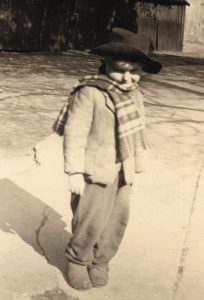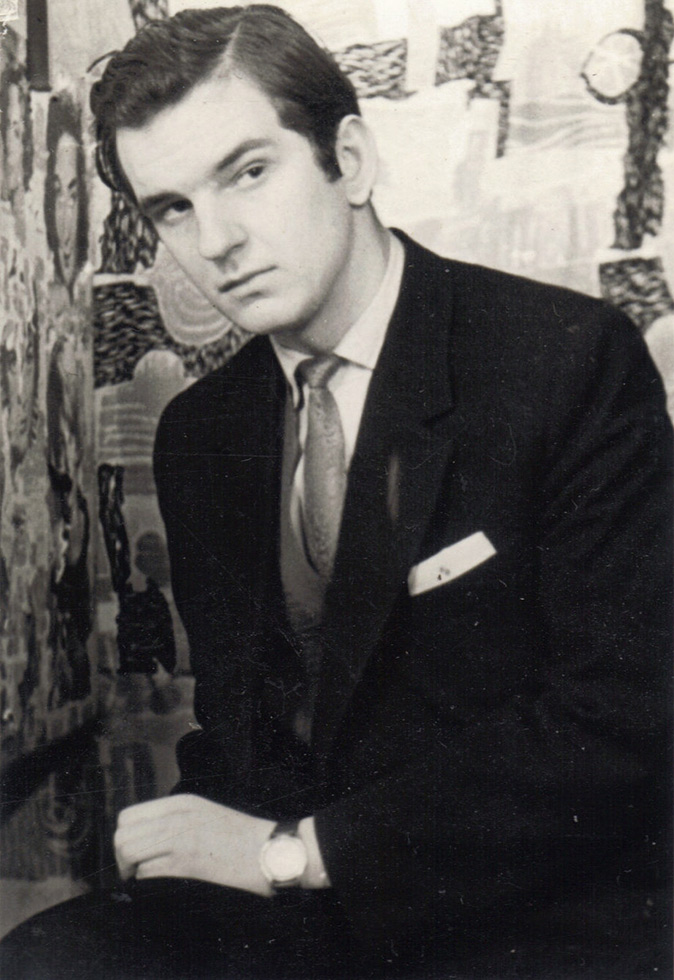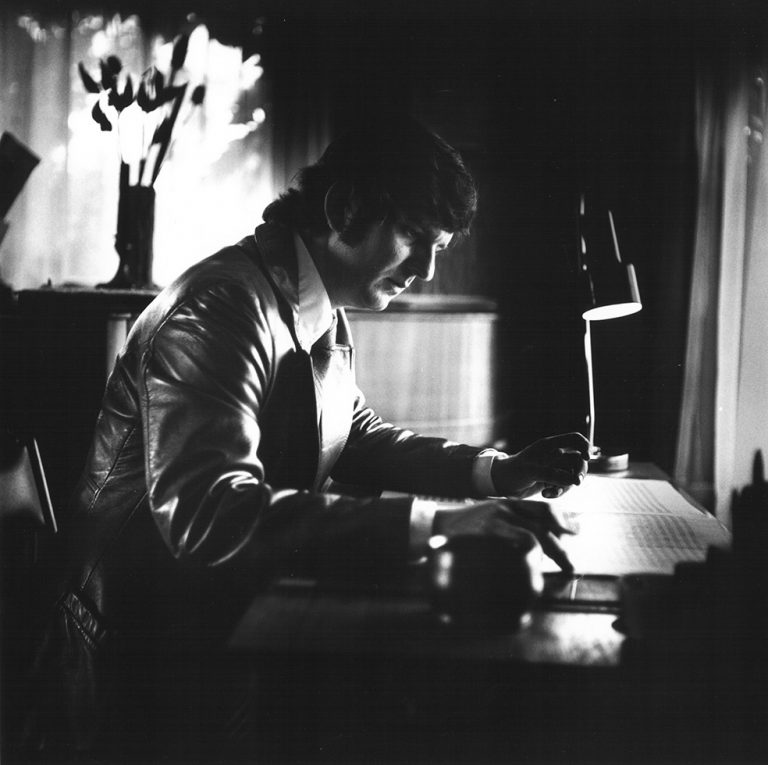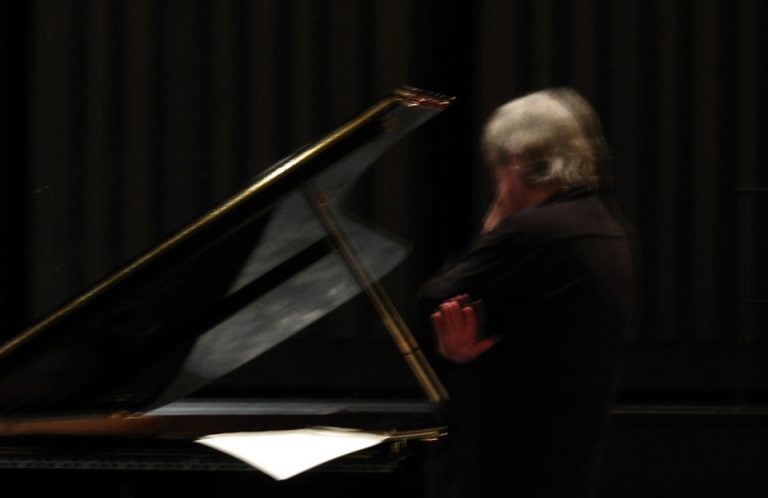Biography
Early YEARS
(1947 - 1954)

EARLY YEARS
(1947 - 1954)
EARLY years
(1947-1954)
 Peter Paul Koprowski was born in 1947 in the industrial city of Lodz, in central Poland. His father, Grzegorz Koprowski, immigrated to Lodz from the environs of St. Petersburg during the advance of the Bolshevik Revolution. His mother, the daughter of a politician who was also an aspiring artist, was a gifted painter and an art lover.
Peter Paul Koprowski was born in 1947 in the industrial city of Lodz, in central Poland. His father, Grzegorz Koprowski, immigrated to Lodz from the environs of St. Petersburg during the advance of the Bolshevik Revolution. His mother, the daughter of a politician who was also an aspiring artist, was a gifted painter and an art lover. During the war, Grzegorz Koprowski spent time in a POW camp after being captured while on his way to join the defenders of Warsaw. His subsequent emotional bearings were to rub off on young Peter and, although rarely spoken about, the war years had a pronounced influence on Peter’s life. Both parents survived the War, however, they were in poor health, emotionally scarred, and physically drained. It was in this environment, two years after WW II, that Peter was born.
EARLY education
(1954 - 1966)
Early Education
(1954 - 1966)
academic CHOICES
(1966 - 1969)

ACADEMIC CHOICES
(1966-1969)
 Upon the completion of the Music Lyceum, Koprowski was offered admission into the piano class at the Academy of Music in his home city of Lodz. He declined, however, and applied to the composition class of Boleslaw Woytowicz in the southern city of Katowice. After passing several rounds of exams, he was admitted with a scholarship.
Upon the completion of the Music Lyceum, Koprowski was offered admission into the piano class at the Academy of Music in his home city of Lodz. He declined, however, and applied to the composition class of Boleslaw Woytowicz in the southern city of Katowice. After passing several rounds of exams, he was admitted with a scholarship. Only a few months later he was advanced into second-year courses. He subsequently suggested to his professor that he wanted to transfer to the Music Academy in the historic city of Krakow, the former capital of Poland. Woytowicz agreed to remain as his advisor there. At the onset of his third year of studies, Koprowski was offered a teaching position in his former Music Lyceum in Lodz, while he commenced working on his dissertation in Krakow.
At this point, he had several new chambers and orchestral works to his credit, including String Quartet (1967); String Trio (1967); Five Preludes for Clarinet and Piano (1966); and a series of pieces for mixed ensembles.
Upon the completion of his dissertation near the end of his third year of studies, Koprowski graduated with an award, and was offered a teaching position at the Krakow Music Lyceum, and the Krakow Academy of Music. He declined both teaching positions, opting instead to take advantage of the opportunity to study with professor Nadia Boulanger in Paris.
NADIA BOULANGER
(1969 - 1971)
NADIA BOULANGER
(1969 - 1971)
early YEARS
in CANADA
(1971 - 1977)

EARLY YEARS in CANADA
(1971- 1977)
Additionally, Koprowski did not wish to return to writing music using the twelve-tone method, while Weinzweig was a strong proponent of this technique. As a student, Koprowski was discouraged from having his works performed and recorded. Consequently, there were no concerts, no recordings, and no performances of his works.
EARLY YEARS in CANADA
(1971-1977)
 In 1971 Koprowski entered the doctoral programme at the University of Toronto. The “Dean” of Canadian composers, John Weinzweig, became his composition instructor. They clashed immediately over Nadia Boulanger and her role in the world of composition.
In 1971 Koprowski entered the doctoral programme at the University of Toronto. The “Dean” of Canadian composers, John Weinzweig, became his composition instructor. They clashed immediately over Nadia Boulanger and her role in the world of composition. Additionally, Koprowski did not wish to return to writing music using the twelve-tone method, while Weinzweig was a strong proponent of this technique. As a student, Koprowski was discouraged from having his works performed and recorded. Consequently, there were no concerts, no recordings, and no performances of his works.
During this time, Koprowski pursued research into the Golden Proportion, culminating in his Canzona for Thirteen Soloists (1973) – a unique serial work structured according to this principle. Canzona remained one of the most sophisticated compositions in his repertoire.
In 1973, Koprowski became an Assistant Professor at McGill University in Montreal. In 1977, he completed his doctorate, at which point he was already in his new post of Professor of composition at Western University.
AWARDS & COMMISSIONS
(1977 - 2002)
AWARDS & COMMISSIONS
(1977 - 2002)
DECADE of REPOSE
(2002 - 2012)

DECADE of REPOSE
(2002-2012)

In some eyes, Koprowski has been living a life of a character from a play by Ionesco or Mrozek. The absurdity of the events that followed one another, became, to large an extent, a model for his music. He concurred with those who described his composition as “the music of the absurd”. He singled out his best composition, the Flute Concerto as the clearest example of it.
The first decade of the new Millennium brought a sense of relative stability in his life. The quality of his life improved. He wrote his Millennium Cantata and in 2006, in Carnegie Hall, New York his Elegia for Polish Youth received its US premiere.
In 2005, the Polish president bestowed Order Polonia Restituta upon him.
In 2009 he became the holder of the National Arts Centre Award for Canadian Composers.
in North American music.”
in North American music.”